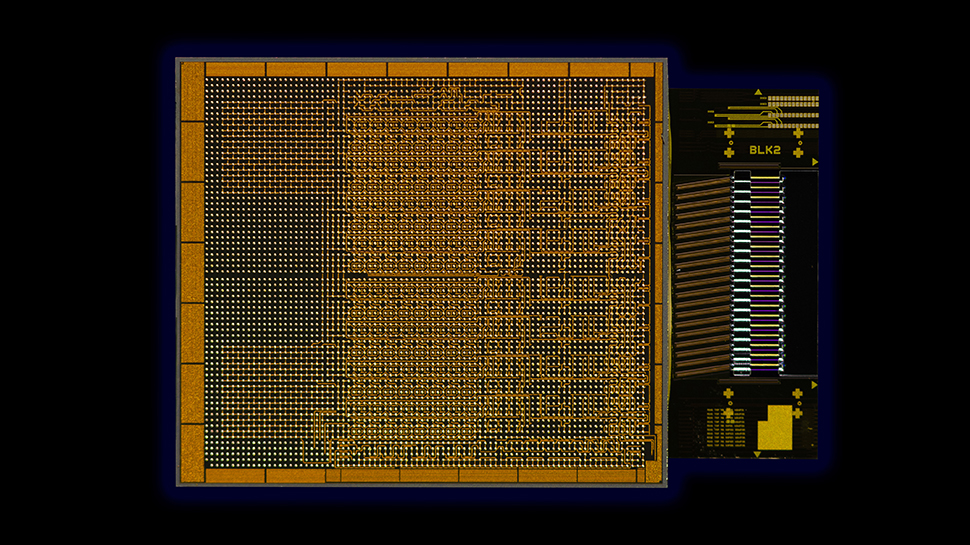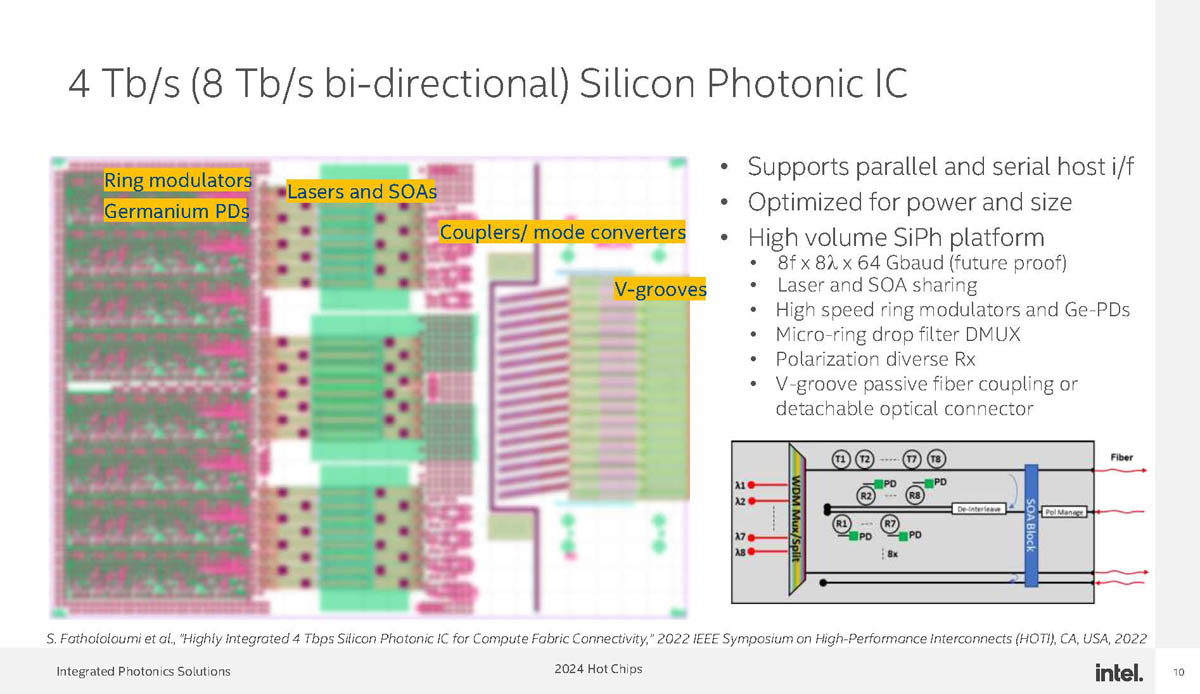
At the recent Hot Chips 2024 symposium in Stanford, California, Intel highlighted its latest advancements in AI technology, covering data centers, cloud computing, edge, and PC applications.
A key moment was the introduction of the industry’s first fully integrated optical compute interconnect (OCI) chiplet, which is designed to enhance high-speed AI data processing. This is something the company has talked about previously.
This new technology aims to improve AI data processing by offering increased bandwidth, lower power consumption, and better scalability for future computing infrastructures. The OCI chiplet, co-packaged with an Intel CPU, supports 64 channels of 32 Gbps data transmission over 100 meters of fiber optics. This innovation is intended to meet the growing demands of AI infrastructure, particularly in high-performance computing (HPC) and data centers.
Advanced packaging
Saeed Fathololoumi, a photonic architect at Intel, noted that the OCI chiplet “is expected to address AI infrastructure’s growing demands for higher bandwidth, lower power consumption, and longer reach.”
Intel's approach to integrated optics, as highlighted in a slide shared with ServeTheHome, focuses on using silicon photonics to enhance Photonic Integrated Circuits (PICs). This involves advanced packaging for heterogeneous integration and close coupling of optical engines with hosts like XPUs, enabling the development of new systems and applications.
Another slide, shown below, goes into further detail, showing how Intel's 4 Tbps (8 Tbps bi-directional) Silicon Photonic Integrated Circuit (IC) supports both parallel and serial host interfaces, optimized for power efficiency and compact size. It includes features like ring modulators, Germanium photodetectors, and V-groove passive fiber coupling, making it ideal for high-volume silicon photonics platforms.

Pere Monclus, CTO of Intel’s Network and Edge Group, said, “As AI workloads intensify, Intel’s broad industry experience enables us to understand what our customers need to drive innovation, creativity, and ideal business outcomes. The OCI chiplet is a key part of our strategy to meet those needs with groundbreaking technology.”
Intel’s emphasis on the OCI chiplet reflects its commitment to maintaining a leading position in technological innovation, even as it faces strong competition in the AI sector. While companies like Nvidia have seen significant growth driven by AI demand - reaching a market cap of $2.928 trillion - and AMD has increased its market cap to $240.44 billion, Intel has not experienced similar gains.
Currently ranked 182nd by market cap at $94.24 billion, down from a peak of $502 billion in 2000, Intel is aiming to regain its competitive edge but might it be too little, too late?
A comment under ServeTheHome’s coverage makes an interesting suggestion: “It is products like this that make me think AMD should bite the bullet and buy out Intel. Keep the networking and optical, keep the software, definitely keep the marketing dept, definitely keep the dept of unacknowledged product design/support dirty deeds. Sell off the CPU and GPU divisions, maybe somebody in the EU or South Korea wants them.”







